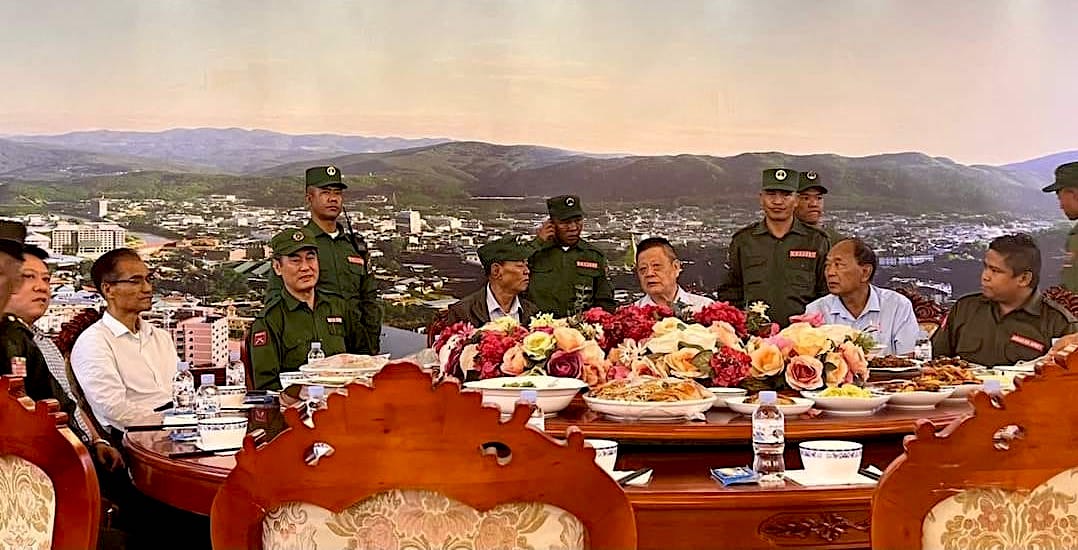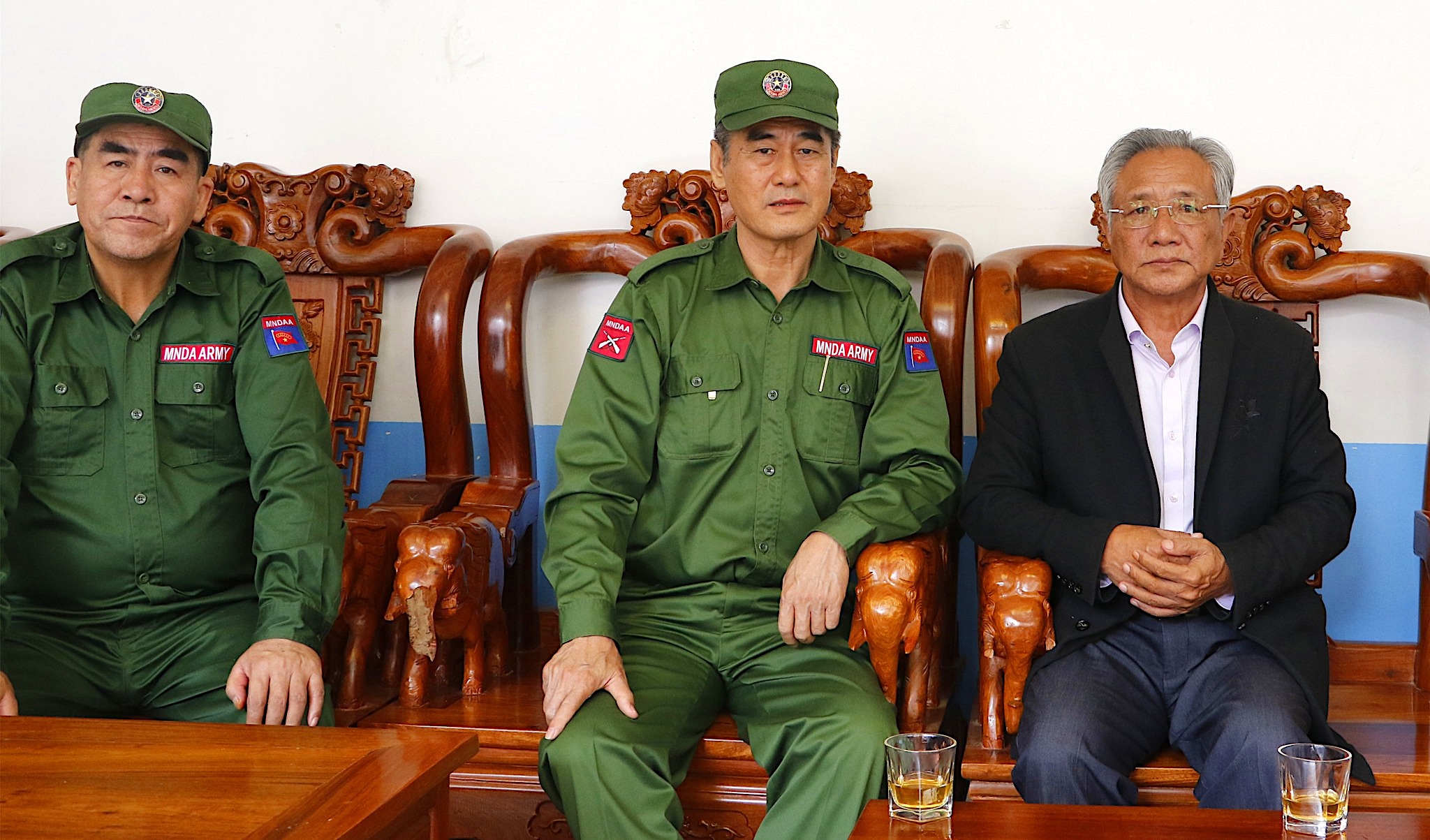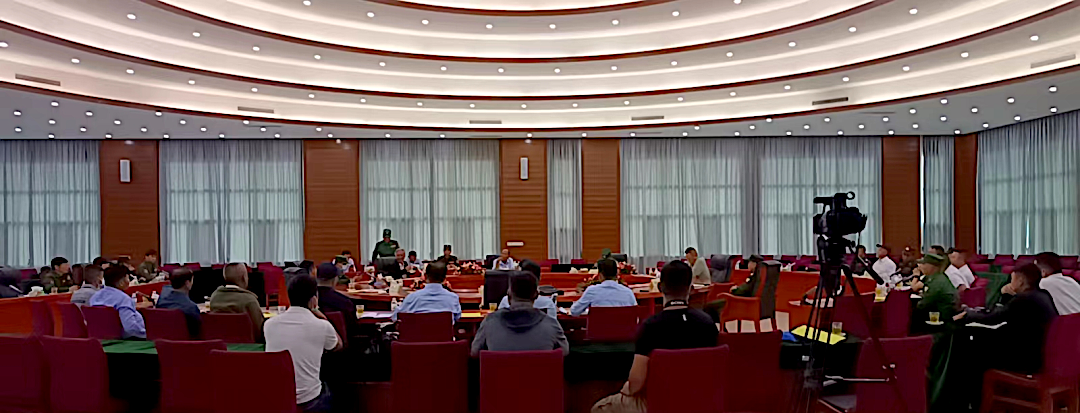Seven of Myanmar’s most powerful ethnic armed organizations (EAOs) met in Wa State’s Panghsang, the headquarters of the United Wa State Army (UWSA), in the second week of September.
The UWSA is Myanmar’s most powerful EAO and controls its own territory – known as Wa State – in the north and south of Shan State in eastern Myanmar. It has an estimated 30,000 soldiers and a sophisticated arsenal of weapons, as well as close ties with neighboring China.
The Federal Political Negotiation and Consultative Committee (FPNCC), a coalition of seven EAOs, met for the first time since the COVID-19 outbreak, said deputy commander-in-chief of the Arakan Army (AA) Brigadier-General Nyo Tun Aung.
Leaders of the UWSA, the AA, the National Democratic Alliance Army (NDAA), the Shan State Progress Party (SSPP), the Ta’ang National Liberation Army and the Myanmar National Democratic Alliance Army (MNDAA) gathered in Panghsang. The Kachin Independence Army (KIA), based in Kachin State, sent a representative to the dinner hosted by UWSA chair Bao Youxiang, said the AA deputy commander.
At an AA press conference on Monday, Brig-Gen Nyo Tun Aung said that the FPNCC members met out of necessity, and that the meeting was also aimed at fostering ties among the EAOs.
“I am in charge of the AA’s office in Panghsang. I am also the secretary of the FPNCC. We met in Panghsang to deepen cooperation with the UWSA, to exchange views on the latest developments in Myanmar and to discuss areas of potential cooperation,” Brig-Gen Nyo Tun Aung told the media.
Last month, the UWSA promoted younger officials to leadership positions. The new leaders met their counterparts in the FPNCC in Mongla in eastern Shan State on September 15.

However, it was the older and most senior UWSA leaders, including Bao Youxiang, Xiao Mingliang and Zhao Guo An, who received their fellow FPNCC leaders in Panghsang. The younger leaders were not present at the meeting, according to an ethnic affairs analyst.
“It was a gathering in the name of the Mid-Autumn Festival [a Chinese celebration also known as the Mooncake Festival]. The SSPP vice-chairman, MNDAA commander-in-chief and the NDAA secretary were present. According to their statements, it was a regular meeting. It has been ages since they last met,” said the analyst.
Another ethnic affairs analyst said he did not regard the meeting as significant. “KIA leaders did not attend, perhaps because it was not convenient for them to travel or because it was not a vital meeting. I think it is wrong to view it as an important meeting. They [the EAOS] are just gathering again to reinforce their alliance.”
The KIA, the AA and the SSPP’s armed wing, the Shan State Army-North, are engaged in active fighting with the military regime. Both the AA and KIA have refused to attend peace talks with junta chief Senior General Min Aung Hlaing.
In recent weeks, the AA, an ethnic Rakhine force, has seized over 10 regime bases in Rakhine State and neighboring Paletwa Township in Chin State. Junta forces have launched airstrikes against the AA in Rakhine’s Maungdaw Township near the border with Bangladesh as it attempts to retake its outposts.
Some observers believe it is possible that the AA may have asked the UWSA for anti-aircraft weapons and tactical advice.

AA deputy commander Brig-Gen Nyo Tun Aung declined to comment on military matters. “People understand what we discuss by looking at the people who we meet,” he told the press briefing.
One ethnic affairs analyst based in Shan State said that the FPNCC members met at the request of China.
“The meeting happened after the junta chief attended the Eastern Economic Forum in Russia earlier this month. China might have arranged for the AA and other EAO leaders to pass through its territory to attend the meeting [in Panghsang]. China might be concerned that Myanmar is no longer a reliable ally. Under such circumstances, they [the FPNCC] might have a lot to talk about,” he said.

Although successive military regimes in Myanmar have traditionally relied on China as their main ally, the current junta appears to be growing closer to Russia, which might upset Beijing which has substantial economic interests in Myanmar, noted the analyst.
“China might regard the fact that the regime is making friends with Russia as a sign that it is no longer a trustworthy and reliable neighbor. So it is fair to say that [junta] ties with China are not good,” he said. If that is the case, it is likely that regime relations with EAOs with close Chinese ties are also strained, added the analyst.

















